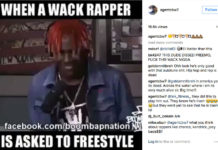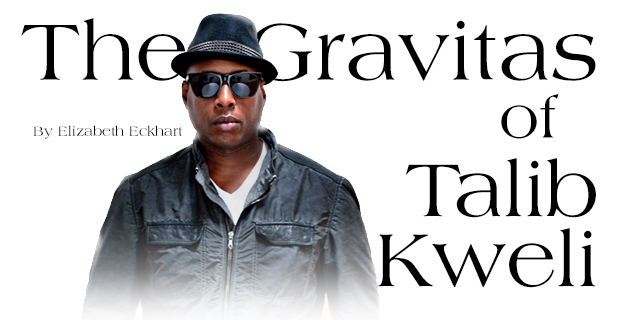In December of 2013, critically acclaimed rapper Talib Kweli released his sixth solo album, titled Gravitas. The album lives up to its title, which means dignity, substance or solemnity of manner, with tracks that combine hard bass and smooth melodies to create a solid hip hop sound. And despite this being the second full album Kweli released in less than a year, there is no sign of lyrical slacking, in terms of delivery or content, on Gravitas. It is a quality project, through and through.
It’s been quite a journey for Kweli. Born Talib Kweli Greene in Brooklyn, New York in 1975, Kweli grew up with highly educated parents. His mother is an English professor at Medgar Evers College at the City University of New York and his father is an administrator at Adelphi College. His first album, released in 1998, was a collaboration between himself and rapper Mos Def, collectively known as Black Star. In 2002, Kweli released his first solo album, Quality.
Kweli has been called the king of “conscious rap,” a title that the rapper is not very comfortable with. Earlier in 2013, Kweli released his fifth album, which he titled Prisoner of Conscious as a response to his listeners and others dubbing him a conscious rapper. Kweli revealed the meaning of the title in an interview with Time. In the interview, Kweli says, “The title alludes to the perception that has been sold to people by the media and the industry. Things have to be put into neat little boxes to be packaged or sold. It’s easier to sell things like that. What I do is so much more dynamic than ‘conscious rap.’ I wanted to address that head on.”
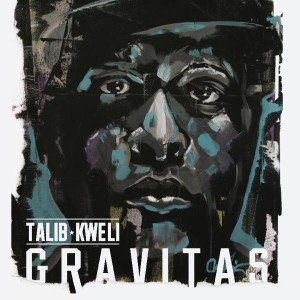 Talib Kweli’s politicization, partly initiated by his childhood exposure to the movement to end apartheid in South Africa, is certainly reflected throughout his music. Kweli frequently raps about perceived injustices and oppression in his music. His greatest hit song, “Get By,” was a metaphor for a struggling generation living amid oppressive social forces. In a song titled “New Leaders” from his latest album Gravitas, Kweli calls for a new generation of leaders to guide our culture out of decadence. Gravitas is an excellent continuation of Kweli’s work and the album has certainly been met with positive reviews. Loyal fans will almost certainly not be disappointed with standout tracks like “Demonology,” “State of Grace,” “Violations,” “Rare Portraits,” “New Leaders” and “The Wormhole,” while the body of work is likely to impress first time listeners who may only now be getting to know Kweli’s music.
Talib Kweli’s politicization, partly initiated by his childhood exposure to the movement to end apartheid in South Africa, is certainly reflected throughout his music. Kweli frequently raps about perceived injustices and oppression in his music. His greatest hit song, “Get By,” was a metaphor for a struggling generation living amid oppressive social forces. In a song titled “New Leaders” from his latest album Gravitas, Kweli calls for a new generation of leaders to guide our culture out of decadence. Gravitas is an excellent continuation of Kweli’s work and the album has certainly been met with positive reviews. Loyal fans will almost certainly not be disappointed with standout tracks like “Demonology,” “State of Grace,” “Violations,” “Rare Portraits,” “New Leaders” and “The Wormhole,” while the body of work is likely to impress first time listeners who may only now be getting to know Kweli’s music.
On the business end of things, the promotion and distribution of Gravitas has been somewhat unconventional. Like his recent tour-mate Macklemore, Kweli is able to successfully sell his music without the help of a record label. He has managed to one-up Beyonce’s recent industry shakeup, selling the album directly from his website, cutting even the mighty iTunes out of the loop. Along with touring and other appearances, Kweli has also appeared on somewhat obscure promotionally driven concerts such as Direct TV‘s Guitar Center Sessions, certainly not a typical hip hop event.
Why is he making these appearances, and promoting his work so heavily instead of partnering with a label? Publicity. Both Macklemore and Kweli were able to self-produce their last albums, with Macklemore receiving great reviews and coverage for the tour and hit songs “Thrift Shop” and “Can’t Hold Us.” Like Macklemore, Kweli is working hard to promote Gravitas on his own with a tour that goes from Brooklyn to New Zealand and Australia.
Perhaps the opening of Gravitas, when New York Times best selling author Neil Gaiman quotes his own famous “Make Art” speech, can lend some further insight. The speech is the first major sign we’re working with something inspiring — which is what we’ve come to expect from the work of Talib Kweli — but it is not only inspiring because of its content, but also because of its revelation regarding how the music world is evolving.
Gaiman’s speech, sprinkled throughout the song “Inner Monologue” is a discussion about how art is changing, how the distribution of art is changing, and it’s relevant because this is the second album Kweli has released on his own, without a record label. As Kweli said, “If you’re not willing to take a gamble on yourself, no one is going to take a gamble on you, no one is going to spend any money. That’s the story now.”
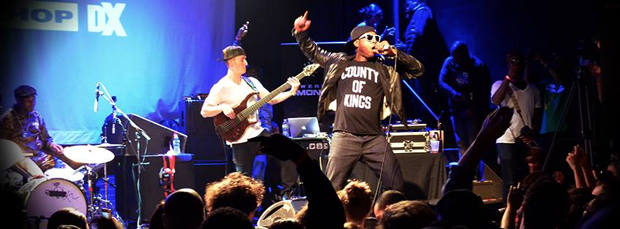
Kweli plans on bringing the creative power back to artists, and eliminating the middleman between the fans and the talent. As he said, shortly after releasing Prisoner of Conscious, he “stands a better chance of financial success if I do this on my own. It’s exciting that artists can now have a piece of their careers. Between the output and the work I’ve put in already, I’ve been blessed to develop a great fan base. As long as I stay on top of that, I’m fine.”
It’s hard to dispute, since Kweli can claim six top ten appearances on Billboard’s Top R&B/Hip-Hop Albums chart. If other artists continue to follow suit, what we might see is a cultivation of more personal relationships between fans and artists — sans the powerful, and often misdirected influence of major labels. Along with other products of the digital age, labels, essentially the car dealerships of albums and singles, are being viewed more and more as an unnecessary remnant from a previous era. It may mean more work from the artist, but most will admit to being in favor of extra labor in order to retain ultimate control over their music.
Purchase Talib Kweli’s Gravitas at www.kweliclub.com
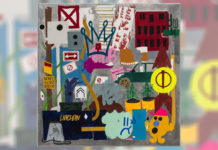


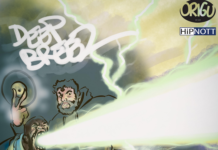

![The Underachievers – Crescendo [VIDEO]](https://www.birthplacemag.com/wp-content/uploads/2017/08/hqdefault-2-218x150.jpg)


![Fat Joe & Remy Ma ft. The-Dream – Heartbreak [VIDEO] Fat Joe Remy Ma The Dream - Heartbreak Video](https://www.birthplacemag.com/wp-content/uploads/2017/05/fat-joe-remy-ma-218x150.jpg)
![JSWISS featuring Chandanie – LML [VIDEO] JSWISS featuring Chandanie - LML [VIDEO]](https://www.birthplacemag.com/wp-content/uploads/2017/05/JSWISS-218x150.jpg)

![Akinyemi Ends Summer With “Summers” EP Release Show [9-17-17] Akinyemi 'Summers' EP release show at Brooklyn Bazaar](https://www.birthplacemag.com/wp-content/uploads/2017/09/summers-featured-218x150.jpg)
![4th Annual NYC VS EVERYBODY Yacht Party [9/16/17] #VSYacht 4th annual NYC VS Everybody Yacht Party#VSYacht](https://www.birthplacemag.com/wp-content/uploads/2017/09/vsyacht-218x150.jpg)




